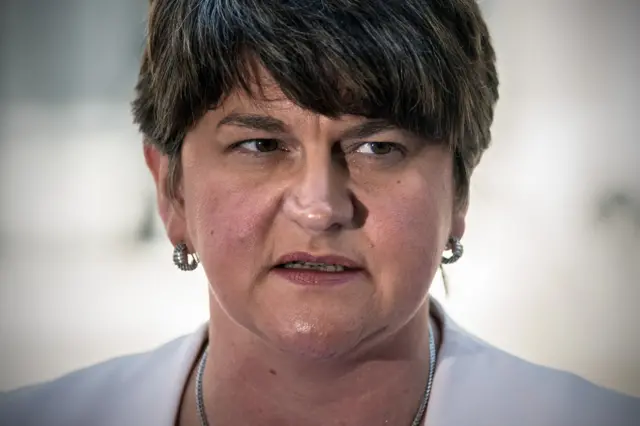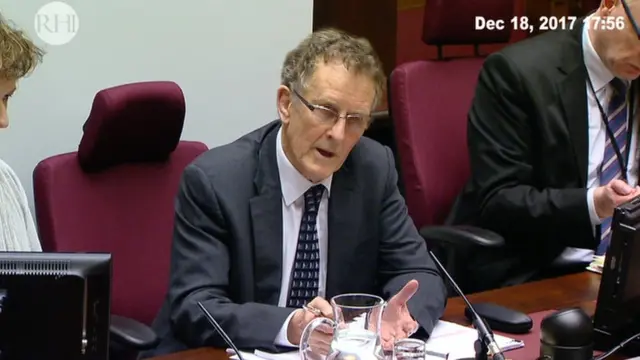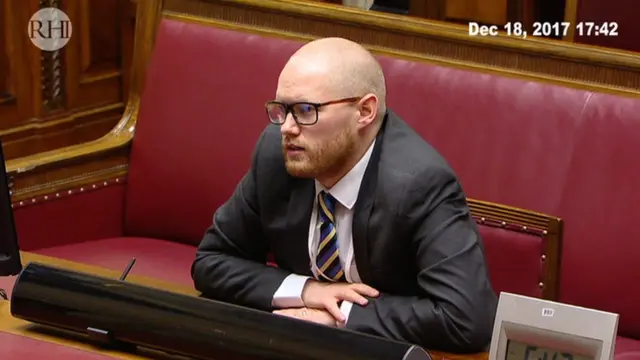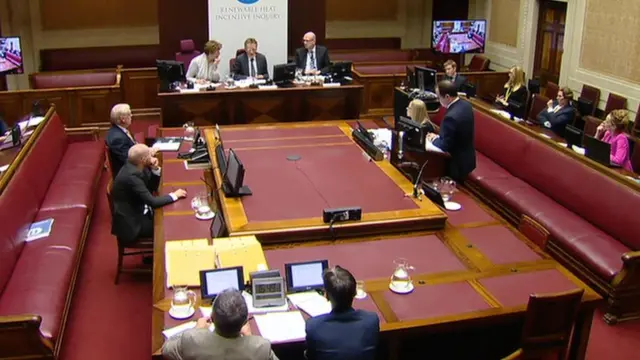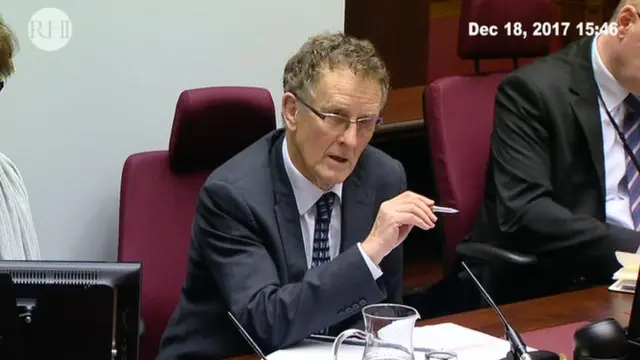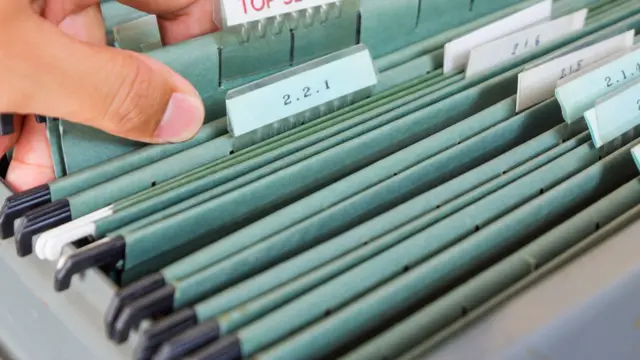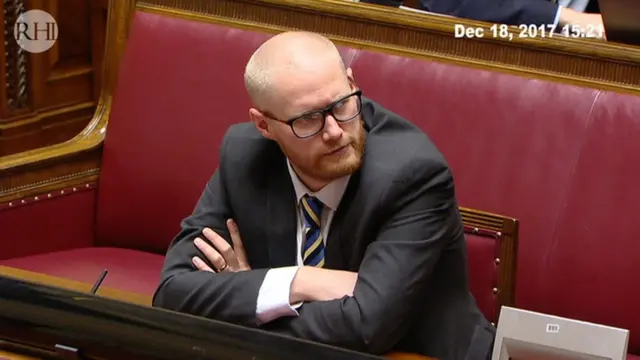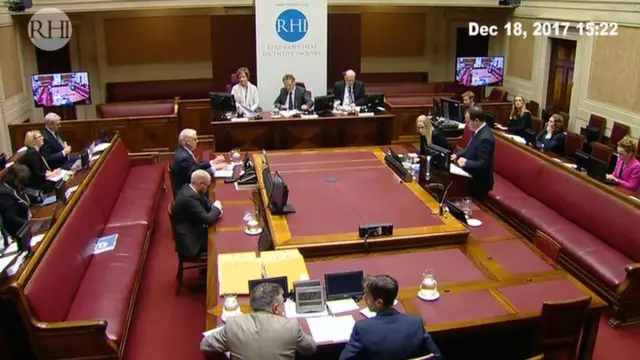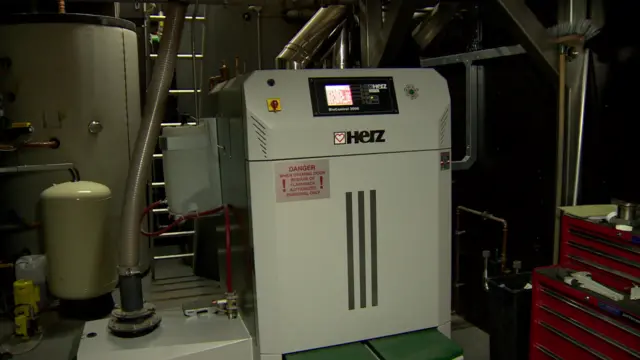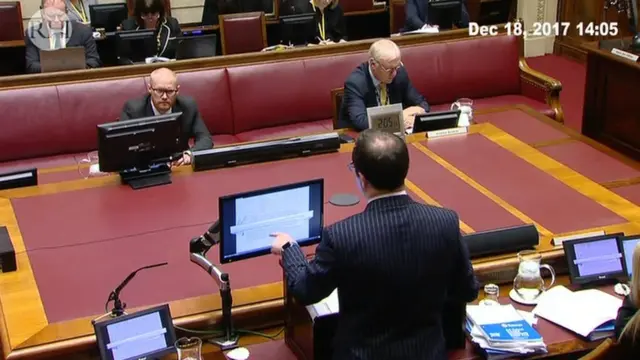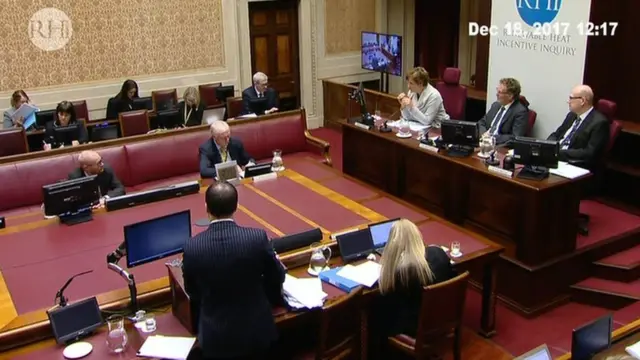That's all for today...published at 18:31 GMT 18 December 2017
After a full two-and-a-half days in the witness chair, Mr Hutchinson's evidence comes to an end... for now, at least.
He'll have to come back when the inquiry moves into its second phase, looking at the initial operation of the RHI scheme... it's still only on part one of four, remember.

With the later-than-planned finish, Dame Una O'Brien jokes with Mr Lunny, saying: "You're not planning on night-shifts, are you?"
Mercifully not! But we'll be back tomorrow for the 09:45 start - do join us then.

